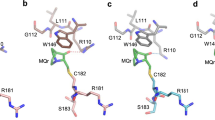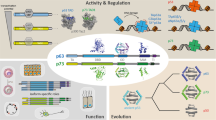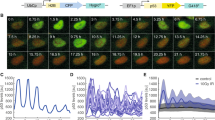Abstract
The tumour-suppressor protein p53 is a metal-binding transcription factor with sequence-specific DNA-binding capacity. In cancer, mutation of p53 disrupts protein conformation with consequent loss of DNA binding and associated tumour-suppressor function. In vitro, the conformation and DNA-binding activity of wild-type p53 are subject to redox modulation and are abrogated by exposure to metal chelators. In the present study, we have used the chelator 1, 10-phenanthroline (OP) to probe the effect of temperature on the conformational stability of p53 translated in vitro. Whereas low temperature (30 degrees C) stabilised wild-type p53 conformation and protected against chelation, high temperature (41 degrees C) promoted destabilisation and enhanced chelation, indicating that temperature influences the folding of wild-type p53. Destabilisation of p53 tertiary structure induced protein aggregation through hydrophobic interactions, consistent with the notion that wild-type p53 contains a hydrophobic core which may become exposed by metal chelation. These results indicate that temperature sensitivity for conformation is an intrinsic property of wild-type p53 and suggests that small changes in temperature may directly affect p53 function.
This is a preview of subscription content, access via your institution
Access options
Subscribe to this journal
Receive 24 print issues and online access
$259.00 per year
only $10.79 per issue
Buy this article
- Purchase on Springer Link
- Instant access to full article PDF
Prices may be subject to local taxes which are calculated during checkout
Similar content being viewed by others
Author information
Authors and Affiliations
Rights and permissions
About this article
Cite this article
Hainaut, P., Butcher, S. & Milner, J. Temperature sensitivity for conformation is an intrinsic property of wild-type p53. Br J Cancer 71, 227–231 (1995). https://doi.org/10.1038/bjc.1995.48
Issue Date:
DOI: https://doi.org/10.1038/bjc.1995.48
This article is cited by
-
Liquid-like droplet formation by tumor suppressor p53 induced by multivalent electrostatic interactions between two disordered domains
Scientific Reports (2020)
-
The influence of thermo-chemotherapy on bladder tumours: an immunohistochemical analysis
World Journal of Urology (2007)
-
Metalloregulation of the tumor suppressor protein p53: zinc mediates the renaturation of p53 after exposure to metal chelators in vitro and in intact cells
Oncogene (2000)



